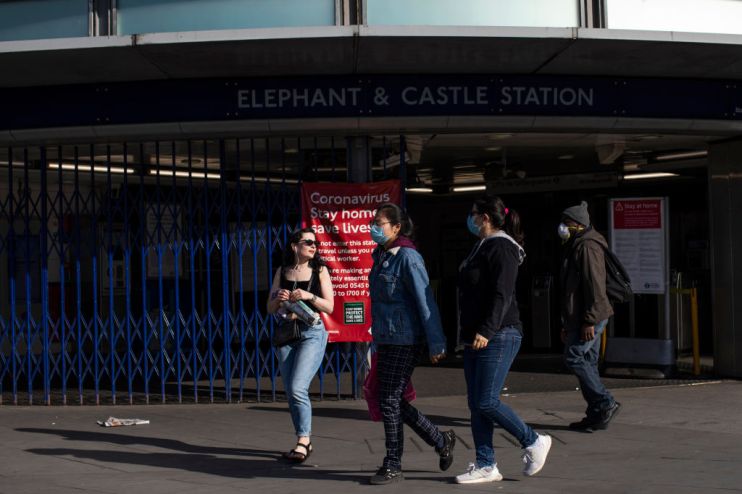TfL should increase fares to promote social distancing, says think tank

Transport for London (TfL) should increase fare prices at peak times once the coronavirus lockdown is eased, according to one of the country’s top think tanks.
The Institute for Fiscal Studies (IFS) released a new report today, suggesting measures such as increased fare prices would act as a disincentive for people catching public transport once workplaces begin to open.
The report also suggests that companies who encourage employees to work from home should receive government subsidies and that London should keep its congestion charge shelved to encourage more people to avoid busy public transport networks.
The congestion charge was put on hold indefinitely by mayor of London Sadiq Khan last month.
Boris Johnson will set out the government’s plan to ease lockdown on Sunday, with some sectors expected to return to work at the end of the month.
Construction, and other industries where work cannot be done from home, will be among the first worksites to open.
IFS deputy director Robert Joyce said: “More than ever the government needs to mitigate uncertainty wherever possible, promote and share innovation and help smooth the matching of workers to jobs.
“It needs to adjust policy to incentivise newly desirable behaviours like home working and avoiding public transport at peak hours. And it needs a transparent and principled stance on supporting industry which will stop it falling victim to special pleading.”
A spokesperson for Khan said the easing of social distancing restrictions would pose “serious challenges around maintaining social distancing”.
“City Hall and TfL continue to work closely with the government to understand how the restrictions may be lifted,” they said.
“This will dictate how many people can be safely carried on our services and the extent to which mitigating measures, including re-timing journeys to spread demand out of peak times and managing stations differently, will be needed.
“Continued working at home for everyone where possible will be absolutely essential, alongside other major changes to people’s routines including staggered shift and opening hours, additional restrictions on the use of the public transport, and bold measures that ensure we get substantially more people walking and cycling.”
Downing Street’s plan is to slowly open up the economy, while keeping the reproduction rate, R, of the coronavirus outbreak to below one.
If the reproduction rate is one then it means every coronavirus carrier will infect one other person.
Chief scientific officer Sir Patrick Vallance said on Thursday that the UK’s R was between 0.6 and 0.9, after being as high as three at the start of the outbreak.